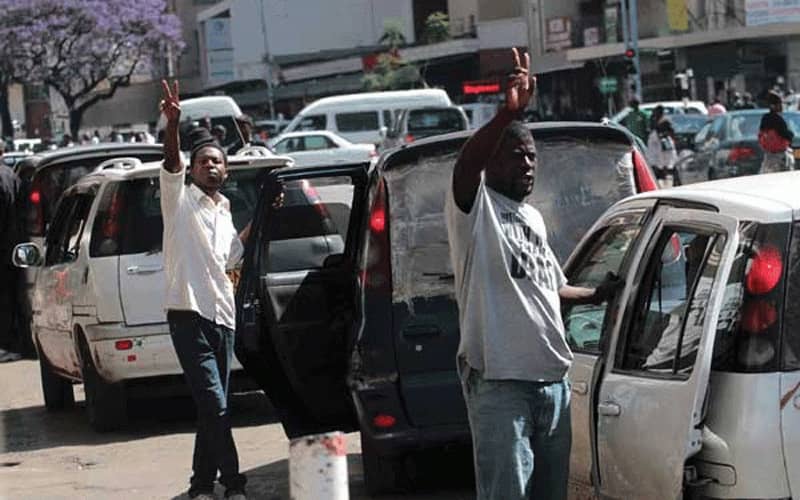Own Correspondent
Transport sector stakeholders are strongly advocating for the Government to implement a budgetary support scheme that would encourage small operators to trade their unsafe, unregistered taxis, known as mushikashika, for safer kombis through a structured and transparent swap arrangement.
This proposal draws inspiration from South Africa’s successful model of upgrading outdated Toyota Siyaya vehicles to Toyota Quantums.
The Parliamentary Portfolio Committee on Transport and Infrastructural Development, chaired by Cde Knowledge Kaitano, presented the proposal. Kaitano stated,
“This applies to pirate taxi (mushikashika) players where the Government can eliminate the Honda Fits, Sientas, NV150, and NV250 from the road by offering their owners, say, a safer Toyota Quantum for every four pirate taxis owned.”
This initiative aims to eliminate illegal taxis, reduce traffic congestion, and improve pedestrian safety while promoting a regulated transport sector. Unregistered taxis have caused significant traffic disorder in Zimbabwe by frequently picking up and dropping off passengers at unauthorized locations and violating traffic laws.
Following discussions with stakeholders, there is a strong push for the Government to facilitate the replacement of old kombis and pirate taxis, focusing on creating a safer and more regulated transport system.
However, reactions from the community are mixed. A mushikashika operator in Bulawayo raised concerns about the financial feasibility of the swap arrangement, stating,
“I generate around US$30 daily per Honda Fit, which makes it about US$120 for four vehicles. A kombi generates only about US$50-US$60 per day, so it’s more profitable to operate Honda Fits.”
He also expressed doubts about the selection criteria and implementation timeframe, saying,
“In my opinion, it would be an unnecessary financial burden to the Government when procuring kombis.”
On the other hand, commuters highlighted the convenience offered by Honda Fits, particularly in underserved areas. A commuter from Burnside noted,
“Honda Fits provide door-to-door services for a small extra fee, which is convenient for me since there are no kombis in my area.”
Despite these reservations, Expriccos Taxis chairman, Mr. Mpikelelo Khumalo, endorsed the proposal as a significant step toward regulating the sector and ensuring accountability. He remarked,
“This is a noble and brilliant idea that came out of the Parliamentary Committee on Transport recommendations, which should be embraced by all unregistered operators. I urge all unregistered operators to engage each other and come up with a consolidated standpoint directed at taking up the offer.”
Mr. Khumalo added that the proposal would bring accountability and fairness to the industry, stating,
“Accountability is vital in any business, and once illegal operators are eradicated, the industry will flourish on a win-win basis. Every operator should pay taxes or levies to authorities, which is not the situation now.”
He encouraged operators to collaborate and present a unified stance to facilitate the scheme’s implementation.
Stakeholders also raised concerns regarding the high compliance costs for small operators.
“To operate legally, a kombi requires about US$1,600 annually for permits and an additional US$3,800 for Vehicle Inspection Department (VID) certification. This makes illegal operations more appealing to small operators,” noted the Transport Committee.
To address these challenges, the committee proposed creating an online “One-Stop Shop” for document applications to streamline processes between local authorities and the Road Motor Transportation Department (RMT).
Zim GBC News©2024


